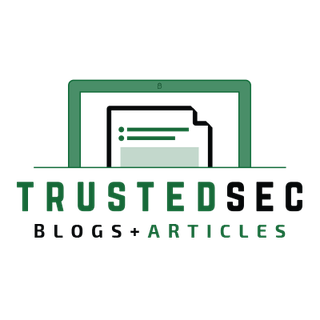September 29, 2017
A Different Take on Exam Prep: CISSP
Written by
Steve Maxwell
Training

I just passed the CISSP examination. I saw what many did to prepare for their exam, and I did something else. I needed something faster to arrive at passing results.
First off, the CISSP is "Certified Information Systems Security Professional". It is an advanced credential requiring not just a passing exam score, but also dedicated security experience as per https://www.isc2.org/Certifications/CISSP. The CISSP and this post are not for people new to Information Technology and Information Security.
From what I can tell, most prepare for the exam with some combination of:
- Study every night for two months
- Read the thousand-page Study Guide
- Take Full Length Practice Examinations
- Attend Training (real or virtual)
- Read an "11th Hour" Book the last two days
A Mile Wide and an Inch Deep
The CISSP is very broad in scope (while being not very technically deep). I had little time with which to study for it. I would not have time to expose myself to every single concept that might appear on the test. Additionally, some test questions are not technical, instead being entirely situational or logical. The test makes you think and not just regurgitate technical facts. How then to efficiently prepare for that?Many Short Tests
Only test questions prepare you for more test questions. The problem with questions however is that they come with tests. Ditch the long tests. Take many small tests. Shorten the feedback loop so that you more quickly review and learn from your mistakes, and then sooner use that new knowledge to take another small test. Helpful for this is a dynamic test generator that assembles questions from a large question pool. I found ISC2 CISSP Tests App by Learnzapp excellent for this, and on mobile too! (Please note that as of May 2018, this app is no longer available within the US iTunes store. See the resources section below) Countless times I took small tests of only 20 to 50 questions. Often the test was from only one of the eight domains. Those domains and their weights for overall scoring are:- 16% Security and Risk Management
- 10% Asset Security
- 12% Security Engineering
- 12% Communications and Network Security
- 13% Identity and Access Management
- 11% Security Assessment and Testing
- 16% Security Operations
- 10% Software Development Security
Throw Your Weight Around
I have a stronger background in Software Development Security, but that is worth only 10%, so I gave it less attention. Two domains are 16% each. Through perfect preparation of these two domains, I could get by with much lower scores in the other six. I will spare you the math, but 60% on all other domains is still a PASS overall if acing those two sections. That’s a lot of benefit from relatively focused excellence.Time Management
“Drop everything else from your calendar and exist only on test prep.” – Jerk Instructors Everywhere Most advice on time management is self-important at best and downright insulting in its naivety. We are told to drop everything else and make THIS THING, THIS TEST your priority. Yawn. Not an option. Instead what worked for me was a simple two-pronged approach:- Casual Study
- Formal Study
Resources
The resources I used in order of their relative importance:- https://www.isc2.org/Certifications/CISSP
- https://crybrary.com/
- Short YouTube videos
- 11th Hour CISSP Study Guide by Eric Conrad
- ISC2 Official Study Guide CISSP
- Quizlet
- Quizlet is a broadly supported app with many sets for learning the CISSP. It will continue to be relevant due to its broad support base that contribute study sets. It is also easy to make your own set for ones harder to remember. It works great online and in app which is a big plus for me. There are many CISSP flashcard apps, both paid and free, but they can’t beat quizlet.
- CISSP Apps
- I had previously included recommendations for 2 apps that are no longer available within the
US iTunes store. Given that, I still find that the remaining free and paid (up to $25) apps can be worth using. I haven't evaluated any specifically, but would use this criteria to look at them:
- Quick examinations (not just long ones)
- Large questions database
- Dynamic tests (not the same questions each time)
- Progress bars (track your progress in completions and in % correct)
- Online (not just in app) for an every-platform experience
- Comprehensive answers
- I had previously included recommendations for 2 apps that are no longer available within the
US iTunes store. Given that, I still find that the remaining free and paid (up to $25) apps can be worth using. I haven't evaluated any specifically, but would use this criteria to look at them: